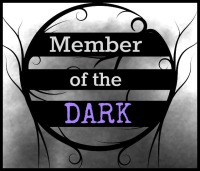
Old Man Yoda
I’ve spent the week writing tips and my own thoughts on how to handle a twisting idea. I admit that it isn’t my area of expertise. My character bios, plot summaries, outlines, and other world building write-ups put me in the plotter camp. I venture into pantser territory at times, which is when I face a twisting idea like I did with War of Nytefall: Eradication. This was also hard because of my emotional state, but I can’t make that the only excuse. I didn’t lock down a real plan for one of the plot points and it had me guessing during the writing. Ended every session with a fear that I had made a fatal mistake. Editing only took the edge off and didn’t remove the terror entirely, but there wasn’t else I could do . . .
Anyway, that’s enough about me because I want to hear from you.
Questions 3!
- Have you ever had to deal with an idea that wouldn’t solidify until the very end of writing?
- What advice would you give to a plotter or new author when it comes to this type of writing?
- What is the craziest twist that you have done in a story without it being pre-planned?





1. Have you ever had to deal with an idea that wouldn’t solidify until the very end of writing?
One book didn’t seem to gel at all. I felt like I was meandering through it. Then an advisor suggested that I needed a better antagonist. I took two weeks to really think about it. Finally I came across a poem that was a revelation to me. I knew who my antagonist was. Though I had to scrap over 100 pages, the book that came out of that period was better than anything I had written.
2. What advice would you give to a plotter or new author when it comes to this type of writing?
Just be cautious about implementing ideas that suddenly pop into your head and seem good, but don’t give you the energy and focus to complete a book you enjoy. Some shiny new ideas are just mirages.
3. What is the craziest twist that you have done in a story without it being pre-planned?
I wouldn’t say it was all that crazy, but I suddenly realized that the mentor in one story was the hidden villain.
LikeLike
1. Ouch. That sounds like a tough pill to swallow, but at least it worked out. What was wrong with the antagonist?
2. Excellent point on creative mirages.
3. That does sound like a crazy twist.
LikeLiked by 1 person
He wasn’t compelling enough and not integrated into the story all that much. I made the new antagonist the third of three point-of-view characters.
LikeLike
That can be a tough one. Having a villain that isn’t around much can be a high risk. I know from experience.
LikeLike
I am dealing with some of Question 1 right now as well. I am just taking my time with it, obviously the ideas aren’t fleshed out enough in my head, so I can’t get them out on paper, but the ones that are, I am writing down. I figure it makes more room for the rest of it to coalesce. Also I am going deep into the motivations of my main characters to discover how they will behave with situations presented to them, and how those scenes will shape ones after them. In my mind it feels like knowing the motivations cold draws the ideas out into the open because there are paths lined out for them to follow. Not sure if this helps, but it’s what I’ve been thinking myself the past couple of days.
LikeLike
Good idea on clearing the mental hallway. Less clutter could lead to a clearer idea. Motivation focus is a great piece of advice. That can reveal a lot.
LikeLike
I have never had to deal with the idea that wouldn’t solidify until the very end. I did have one idea that didn’t solidify by the end, so I had to put it in the next book with proper build-up.
My advice to a new author or plotter with a runaway or elusive idea is to try and write it out, and if it doesn’t work, leave it out.
The craziest twist that I have done in a story without it being pre-planned is to kill off a central and then have him narrate the story. I had to go back and rewrite the beginning after he died.
LikeLiked by 1 person
Interesting advice. Basically, toss away a loose thread that you can’t pin down. Nice twist.
LikeLiked by 1 person
Yup. That is it.
LikeLike
1.) Every damned time, if I’m being honest.
2.) Writing builds fences. After eliminating some possibilities and establishing certain aspects it gets easier to fit the twist in. I’m dealing with one right now that’s going to require two characters to be in two different places at once. Something has to give, and writing it is helping me eliminate what that might be.
3.) That would involve the magical sextant in Lanternfish. The ending changed dramatically, but it’s better than what I had planned.
LikeLike
Took me a second to get the fences idea. Good one.
LikeLiked by 1 person
For me, I need to fence myself in a bit. The issue usually clarifies itself somewhere during that.
LikeLike
I often have aspects of the plot that I don’t know when I start, although I have more an idea where I want to end up. But like Craig says, when you get going, things that happen will cut off certain avenues, so by the time I “get there,” there’s usually just one most logical possibility.
LikeLike
I can typically narrow it down to two or three possibilities. Then, it’s just a matter of choosing the best one.
LikeLike